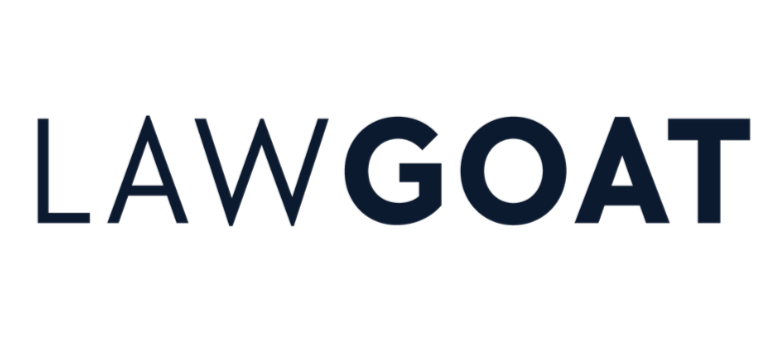The Risky Business of Getting Legal Advice from the Internet (and the Smarter Way Forward)
Written by
LawGoat Team
May 4, 2025
3 mins read
Searching for legal help online can be risky—unless you use trusted AI-powered matching. Learn the pitfalls and discover how smart tech connects you safely with qualified lawyers.

The Risky Business of Online Legal Help (and the Smarter Way Forward)
When legal trouble strikes, the instinct to consult the internet is second nature for most of us. It’s fast, it’s anonymous, and it feels like there’s an answer for everything.
You type in your question and, presto, a deluge of tips, checklists, and self-proclaimed “expert” opinions suddenly materialize. But depending on generic search results is a little like asking a Magic 8 Ball for tax advice—fun until the stakes get real.
Where Online Legal Help Gets Risky
The allure of free, instant information can mask serious pitfalls. For starters, much of the legal advice floating around online is unreliable or incomplete. Consumer protection bodies in the UK and elsewhere have repeatedly flagged the lack of price and quality transparency among providers.
— For example, a UK evidence submission to Parliament cited research on 1,000 conveyancing websites showing that many firms failed to provide clear cost information.
Laws are moving targets. Employment agreements, privacy requirements, and tenant rights evolve over time—and a “how-to” guide from a few years back may not reflect current legal realities. Using an outdated template could expose you to liability instead of offering protection.
Jurisdiction is another major stumbling block. Googling “Can I add a non-compete to an employment contract?” will yield wildly different answers depending on location—valid in one state, void in another. Advice from a law blog in Minnesota won’t necessarily help you if your dispute is in New Jersey. Mismatched legal guidance can lead to unenforceable contracts or unexpected penalty exposure.
The “one-size-fits-all” nature of most online legal resources leads many down a risky path. Legal situations are unique—your timeline, relationships, and particular facts create a distinct picture that a generic template or forum answer can never fully capture. Using a template that doesn’t account for your specific circumstances can cause you to miss protections or expose you to risk.
Confidentiality is also often overlooked in the rush for quick answers. Posting a question about a personal legal issue in a public forum might seem harmless—but there’s no attorney-client privilege in that context. What you share could later be used against you. (Attorney-client privilege generally applies only to confidential communications with a licensed lawyer, not public postings.)
Another hidden risk: commercial incentives. Many legal “blog posts” are marketing vehicles in disguise, designed to funnel readers toward paid services. The U.S. FTC’s Endorsement and Native Advertising Guides require that any sponsored or paid content be clearly disclosed. (FTC Guidelines) Without transparency, you may be led toward options that benefit the promoter more than you.
A Safer Option: AI-Powered Attorney Matching
Technology isn’t just offering new risks—it’s paving better, safer ways to connect with real experts. AI-driven client-matching services have emerged as a practical, secure alternative to the wild west of online legal advice.
What sets these platforms apart is their focus on verified, quality connections. Think of AI-powered matching as your legal matchmaking concierge—working behind the scenes to ensure you’re paired with the right specialist (not just the loudest advertiser on the block).
These sophisticated platforms:
- Rigorously verify attorney credentials, licensing, and track records, removing the guesswork from your search.
- Filter matches by your unique needs—location, language, area of expertise—so you’re not in a California landlord forum when you really need help with immigration law in Illinois.
- Use encrypted, confidential messaging tools to make sure your information—and your questions—stay between you and the professional until you’re ready to move forward.
- Gather and display genuine client reviews, dynamically filtered for relevant case types, so you can spot attorneys with a history of strong results, not just a flow of marketing dollars.
Because AI is used to power these matchings, it’s critical to watch for hallucination risk—i.e. generating plausible but false statements. In the legal domain, hallucination has been observed in AI tools: for example, some recent evaluations showed that well-known legal research AI tools produced inaccurate or entirely fabricated citations in 17 % to 33 % of tested prompts. (source) Courts have even sanctioned lawyers for citing cases that did not exist—showing how severe the consequences can be when AI tools mislead. (See Mata v. Avianca as a high-profile example.)
Picture this in action: Maria, an independent contractor in Oregon, faced a dispute with a client over unpaid invoices. Her first stop? A legal advice forum, which suggested a series of demand letter templates—with no regard for local small claims court rules. When those templates were rejected by the court clerk, Maria lost precious time and incurred extra costs.
Frustrated, she turned to an AI-powered attorney-matching service, which paired her with a licensed attorney in her county. Within days, she had a court-ready demand letter properly tailored to her situation, along with guidance on the next steps—all with her privacy and details safe from prying eyes.
Beyond guidance, these platforms breathe new life into the idea of attorney-client compatibility. Knowing you’ve been matched based on experience, specialization, and genuine client feedback—rather than a random Google ad—is a game-changer. You’re not casting a message in a bottle out to sea; you’re getting a tailored, confidential introduction to a professional who is genuinely equipped to help.
When choosing a matching service, look for firms that make their verification and workflow processes transparent (e.g. license checks, jurisdiction filters, audit trails) rather than relying on opaque marketing claims.
Using the Internet for Legal Help—The Smart Way
- Stick with official sources (government or state bar sites) when seeking background information or legal basics. These are vetted and updated more rigorously than blogs or generic Q&A boards.
- Turn to AI-powered matching services when you need personalized expertise that matches your jurisdiction and legal area—saving you time, stress, and uncertainty.
- Never share personal or case-specific details on public forums, message boards, or open social media; privacy and confidentiality must come first.
- Use online info as a learning foundation, but remember: smart, human judgment is what builds real solutions.


The Takeaway
Searching for legal help online is easy, but finding reliable, personalized, and confidential help is another story.
AI-powered attorney matching fills this gap safely, efficiently, and transparently—connecting everyday people with the real, human legal advocates they need, right when they need them. Instead of crossing your fingers and hoping you’ve Googled the right answer, you can use technology as a bridge to real expertise and genuine peace of mind.
And isn’t that the smartest legal move of all?
Be The First To Experience LawGoat for Lawyers
Sign up for early access


.png)
.svg)
.png)
